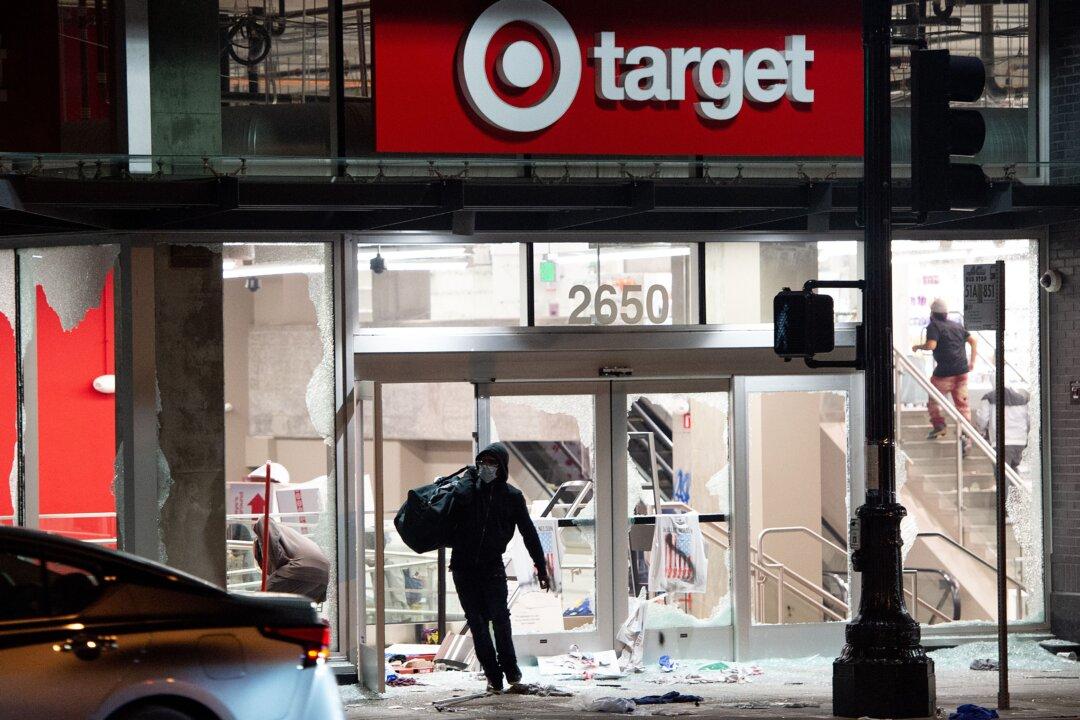Target announced on Tuesday its decision to shutter nine of its stores, across four Democrat-led states, in October, citing escalating safety concerns and unsustainable business performance due to rampant “organized retail crime.”
In a company statement, Target said that it took the decision to close its retail stores “very seriously,” having tried and failed in its efforts to stop theft and safeguard the customer experience and business performance.





